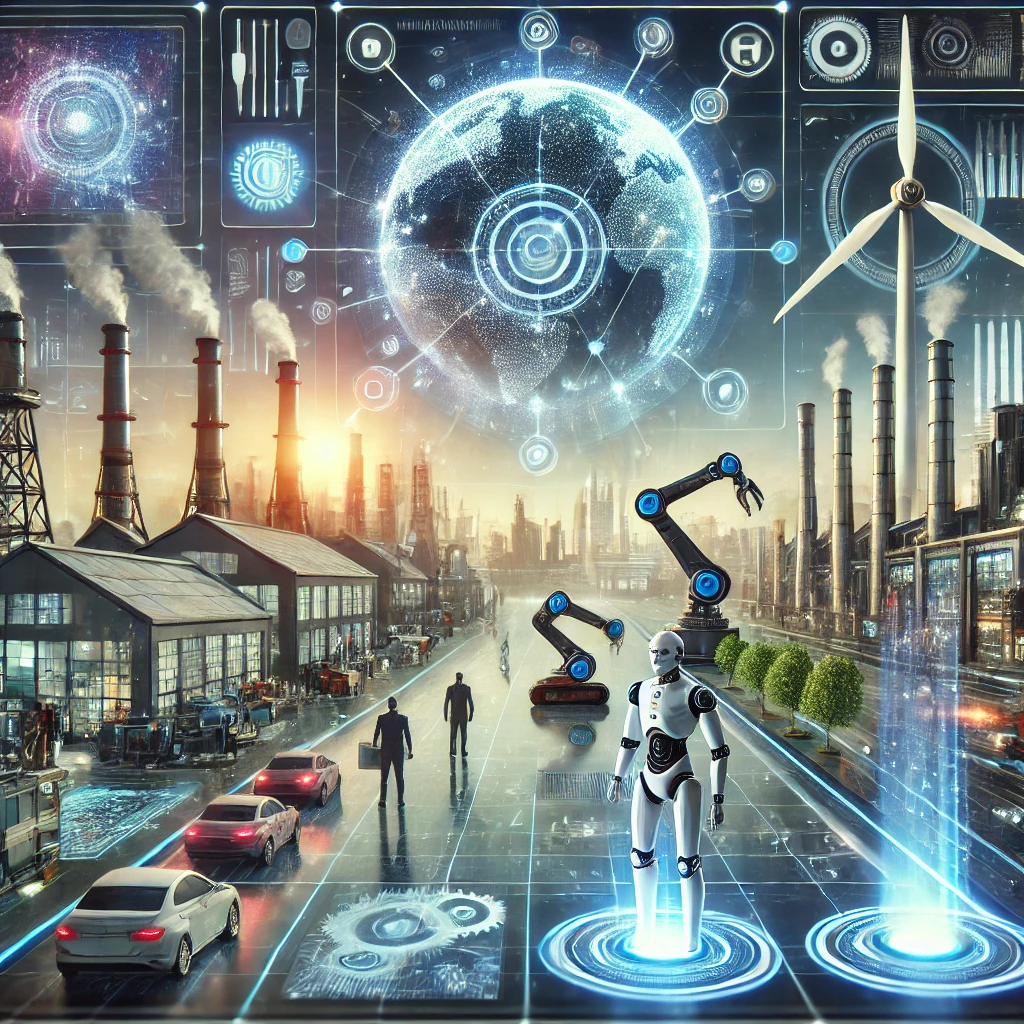In an age of rapid technological advancements and dynamic market demands, industries across the globe are experiencing unprecedented transformations. From artificial intelligence to green energy solutions, the evolution of traditional sectors is redefining the way businesses operate, engage with customers, and contribute to society. Let’s explore some of the most innovative industry transformations that are shaping the future.
1. The Rise of Artificial Intelligence in Business
Artificial intelligence (AI) has emerged as a cornerstone of innovation across multiple industries. By automating repetitive tasks, enhancing decision-making processes, and enabling predictive analytics, AI is revolutionizing the way companies operate.
- Healthcare: AI-powered diagnostic tools analyze medical data with remarkable precision, reducing the margin of error and improving patient outcomes. Telemedicine, supported by AI, has also become a standard offering.
- Retail: Personalized shopping experiences are now possible thanks to AI-driven recommendation engines, which analyze consumer behavior and predict preferences.
- Finance: Fraud detection, automated trading, and customer service chatbots are transforming the financial services landscape.
2. Sustainability and Green Technologies
As environmental concerns grow, industries are adopting greener practices and technologies. The push for sustainability is not only ethical but also economically viable as consumers increasingly favor eco-friendly products and services.
- Energy: Renewable energy sources such as solar, wind, and hydrogen fuel are gaining traction. Innovations like smart grids and energy storage solutions are optimizing resource use.
- Transportation: Electric vehicles (EVs) and autonomous vehicles are setting new standards for efficiency and environmental responsibility.
- Manufacturing: Circular economy practices, such as recycling and waste minimization, are being implemented in production lines worldwide.
3. Digital Transformation of Traditional Industries
Digital tools and platforms are reshaping industries that have been historically resistant to change.
- Education: E-learning platforms, virtual reality classrooms, and AI tutors are making education more accessible and personalized.
- Agriculture: Precision farming, supported by IoT devices and data analytics, is increasing crop yields and reducing waste.
- Construction: Building Information Modeling (BIM) and 3D printing technologies are enabling faster, cost-effective, and sustainable construction projects.
4. The Emergence of the Metaverse
The metaverse—a collective virtual shared space—is poised to transform social interactions, business operations, and entertainment.
- Gaming: Immersive virtual worlds are creating unprecedented opportunities for user engagement and monetization.
- Retail: Virtual showrooms allow customers to experience products digitally before purchase.
- Real Estate: The metaverse is opening new markets for digital real estate, where virtual spaces are bought, sold, and developed.
5. Biotechnology and the Future of Health
Biotechnology is pushing the boundaries of medical science and agriculture.
- Gene Editing: Tools like CRISPR are revolutionizing treatments for genetic disorders and enabling the development of disease-resistant crops.
- Personalized Medicine: Advances in genomics are leading to tailored treatment plans based on individual genetic profiles.
- Synthetic Biology: This field is enabling the creation of bioengineered materials, biofuels, and even lab-grown meat.
6. Blockchain Beyond Cryptocurrencies
While blockchain gained fame through cryptocurrencies, its applications go far beyond digital money.
- Supply Chain: Blockchain ensures transparency and traceability, helping companies verify the authenticity of goods.
- Healthcare: Secure data sharing through blockchain improves patient confidentiality and streamlines administrative processes.
- Finance: Decentralized finance (DeFi) platforms are providing innovative alternatives to traditional banking.
Challenges and Opportunities
Despite these advancements, industries face challenges such as regulatory hurdles, ethical considerations, and the need for reskilling the workforce. However, these hurdles also present opportunities for businesses to lead through innovation, collaboration, and adaptive strategies.
Conclusion
The ongoing transformations in industries highlight the boundless potential of innovation to solve complex challenges and unlock new opportunities. By embracing technological advancements and sustainable practices, businesses can not only stay competitive but also contribute to a more equitable and prosperous future.
As industries continue to evolve, the focus must remain on creating value that benefits all stakeholders—businesses, consumers, and the planet alike. This era of innovative industry transformations is not just about adapting to change; it’s about shaping the future.
[SEO optimized]
